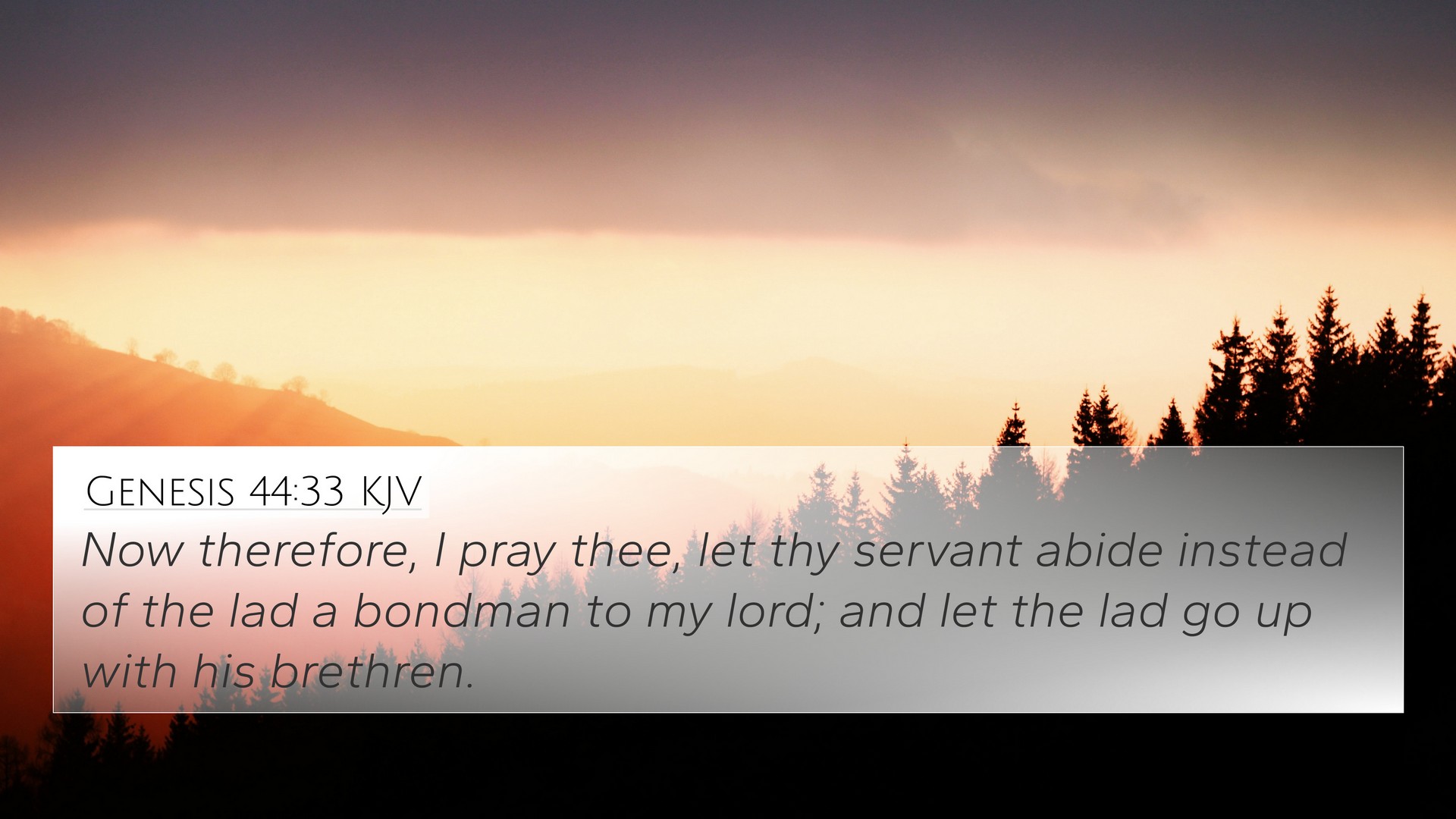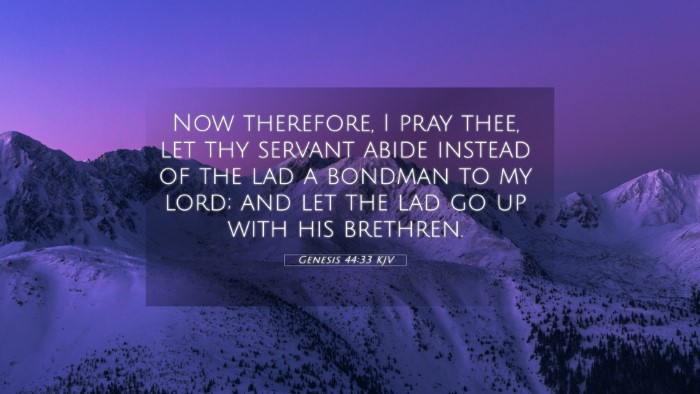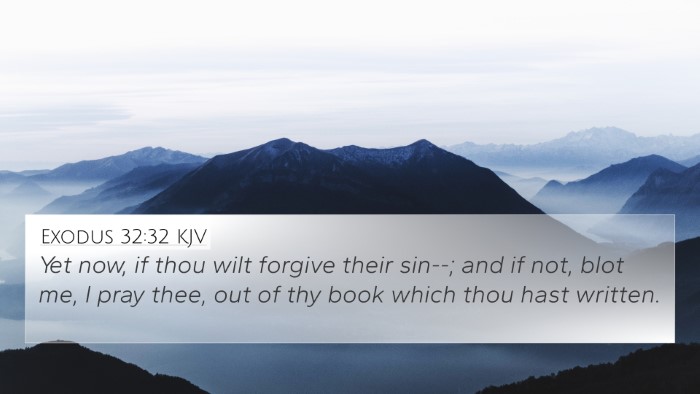Understanding Genesis 44:33
Genesis 44:33 is a pivotal verse in a narrative rich with themes of reconciliation, sacrifice, and responsibility. This verse captures the moment when Judah offers himself as a substitute for his brother Benjamin, recognizing the deep bonds of family and the lengths one might go to protect loved ones. The implications of this selfless act resonate through Scripture, inviting comparisons and cross-references with various Biblical texts.
Verse Context
In the context of Genesis 44, Joseph has framed Benjamin for theft to test the loyalty of his brothers, who had previously betrayed him. Judah's plea signifies a moment of transformation for the brothers, moving from jealousy and betrayal to unity and self-sacrifice.
Key Themes Highlighted
- Self-Sacrifice: Judah's willingness to take Benjamin's place is a direct reflection of true love and responsibility, akin to the Christian understanding of Christ's sacrifice.
- Family Bonds: This verse emphasizes the importance of family loyalty and unity, which is a recurrent theme throughout the Bible.
- Redemption: Judah's actions foreshadow the redemptive theme found in Christ's own sacrifice for humanity.
Bible Verse Cross-References
- John 15:13: "Greater love hath no man than this, that a man lay down his life for his friends."
- Romans 5:8: "But God commendeth His love toward us, in that, while we were yet sinners, Christ died for us."
- Genesis 37:26-27: Judah's prior actions that led to early betrayal contribute to the emotional weight of his new role.
- 1 Samuel 18:1: The bond between David and Jonathan serves as another example of deep familial loyalty.
- Hebrews 7:22: Highlights Christ as the ultimate intercessor, paralleling Judah's role as a mediator for Benjamin.
- Ephesians 5:2: Calls for believers to walk in love, as Christ loved us and gave Himself for us.
- Philippians 2:4: Encourages believers to look not only to their own interests but also to the interests of others, mirroring Judah's plea for Benjamin.
Insights from Public Domain Commentaries
Matthew Henry's Commentary
Matthew Henry emphasizes the emotional weight of Judah's words and the transformation that has occurred in his character. He notes that Judah's offer to become a slave in place of Benjamin reflects the essence of true repentance and the shift from selfishness to altruism. Henry views this as a significant step in the reconciliation process between Joseph and his brothers.
Albert Barnes' Notes
Albert Barnes highlights the legal and moral implications of Judah's speech. He points out that Judah not only pleads for Benjamin but also acknowledges the deep spiritual and familial role he plays. Barnes draws parallels to the biblical theme of substitutionary atonement, suggesting that Judah's actions prefigure Christ's ultimate sacrifice.
Adam Clarke's Commentary
Adam Clarke discusses the notion of personal responsibility that Judah takes upon himself. He brings forth the idea that Judah's offer reinforces the moral law that calls for taking on the burdens of others. Clarke also notes the emotional tension in the narrative, illustrating how Judah's plea serves not just as an act of bravery, but as a crucial turning point in the story of Joseph and his brothers.
Connecting this Verse to Broader Theological Themes
Genesis 44:33 exemplifies a profound theological theme of substitution, which echoes throughout biblical redemption narratives. The exploration of atonement and reconciliation within Scripture reveals the inter-Biblical dialogue that underscores the continuity of God's redemptive plan.
Comparative Bible Verse Analysis
By analyzing various biblical texts that touch upon themes of redemption and sacrifice, we see how this verse serves as a microcosm of a larger divine narrative. Connections between Old and New Testament figures, particularly in their roles as mediators, enhance our understanding of God's sustained commitment to His people.
Tools for Bible Cross-Referencing
For those interested in deeper study, employing tools like a Bible concordance or a Bible cross-reference guide can enrich your understanding of Genesis 44:33. These resources allow for exploration of thematic connections and help in identifying similar verses throughout the Scriptures.
Conclusion
Genesis 44:33 serves as a profound reminder of the strength of familial love and the importance of selflessness. The act of Judah offers a powerful illustration of redemption that resonates deeply within both the Old and New Testaments. By exploring this verse within the context of biblical cross-referencing, we uncover rich layers of meaning, enhancing our understanding of God's overarching narrative of love and sacrifice.







